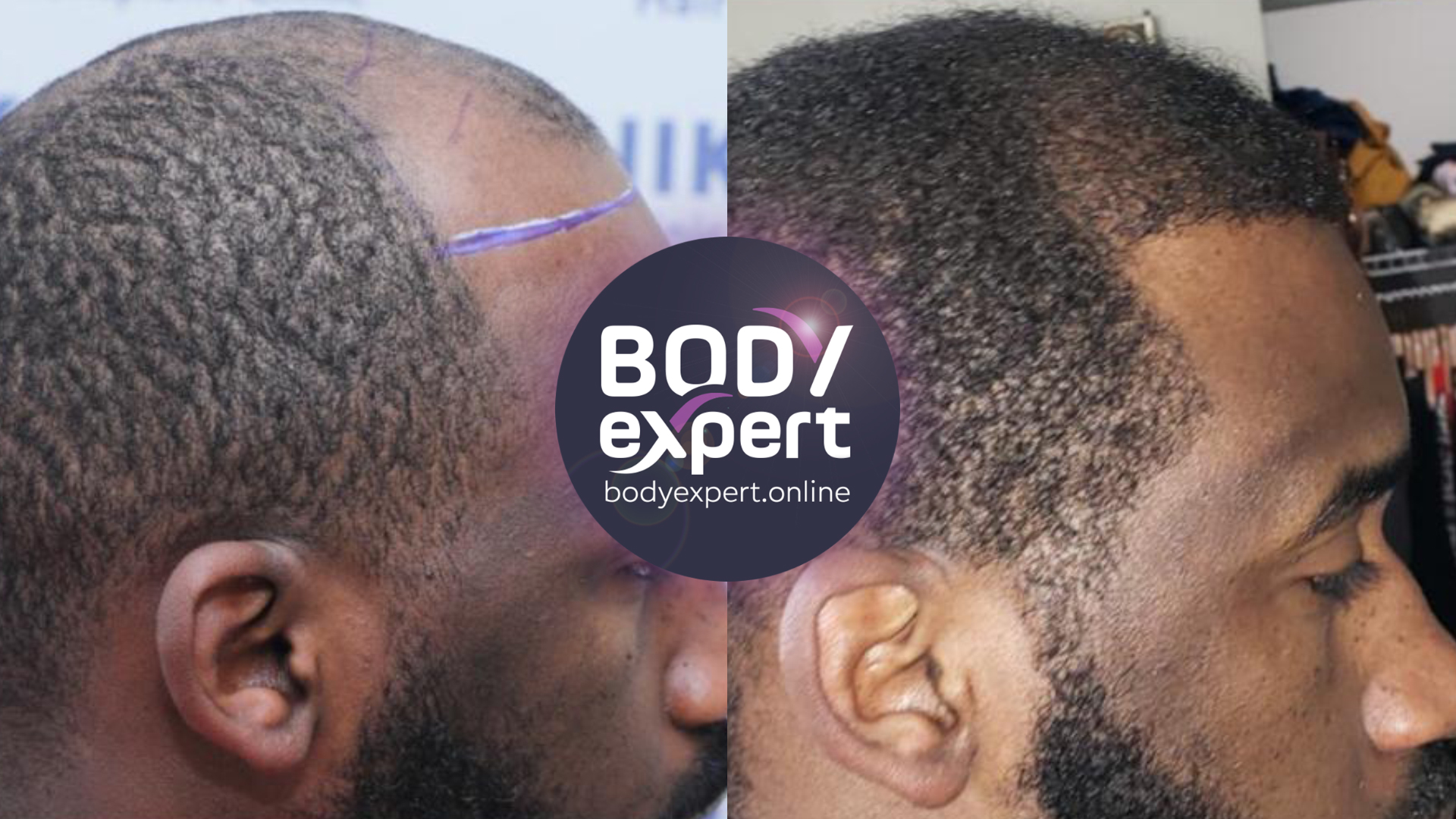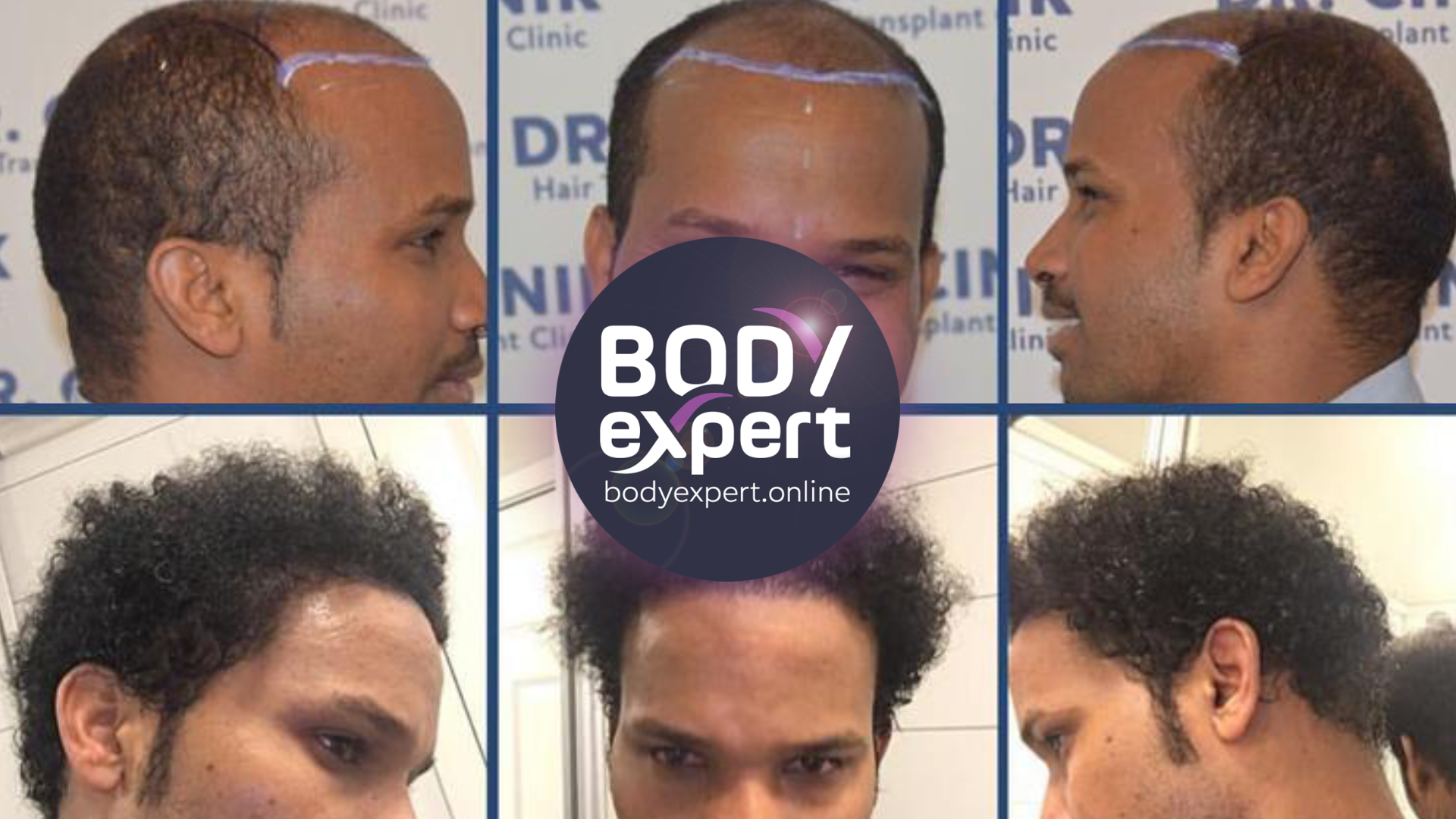FUE afro hair transplant




Save Up to 80% on
your hair transplant
Deep expertise with
afro hair transplants
Over 99% Patient Satisfaction
with Body Expert


Save up to 70%
80% Cheaper Than the UK, the US, Canada and Ireland
Top Surgeon with 50,000+ Successful Transplants
English-Speaking Care & Thorough Post-Op Follow-Up
Turkey #1 choice for hair transplant

When it comes to hair loss, for both men and women, not all ethnic hair origins grow on an equal footing. Thus, alopecia is much less widespread in Asia than among the European population, but it affects even more the population of African origin, and particularly women: 70 to 80% of black American women suffer from it. Moreover, more than 80% of this population would wear wigs, weaves or braids: a business estimated at several billion dollars per year in the United States alone… The subject is as widespread as it is taboo: actor Will Smith’s outburst at the last Oscars ceremony, to save the honor of his wife suffering from alopecia, is just one recent illustration. According to a recent study from the Stone Epidemiology Center from the Boston University (MA), conducted over 6000 women from black african ascendance, nearly half of them admitted suffering from hair loss at the crown level, mainly because of hair mistreatment, creating traction alopecia.
Several specific reasons explain the extent of the phenomenon, very largely spread among the British African Caribbean women. The characteristics of frizzy hair and Afro scalp, the hair styling habits and hair pathologies specific to black skin are the most recurrent reasons. These are all fundamental elements to be taken into account for helping patients find the best answers to their problem, and to help them choose the most suitable treatment and the most experienced surgeons for frizzy hair grafting. A specialty of some hair transplant clinics in Istanbul, Turkey, a top medical tourism destination with an international reputation for both medical excellence and unbeatable value for money, especially when it comes to hair grafting.
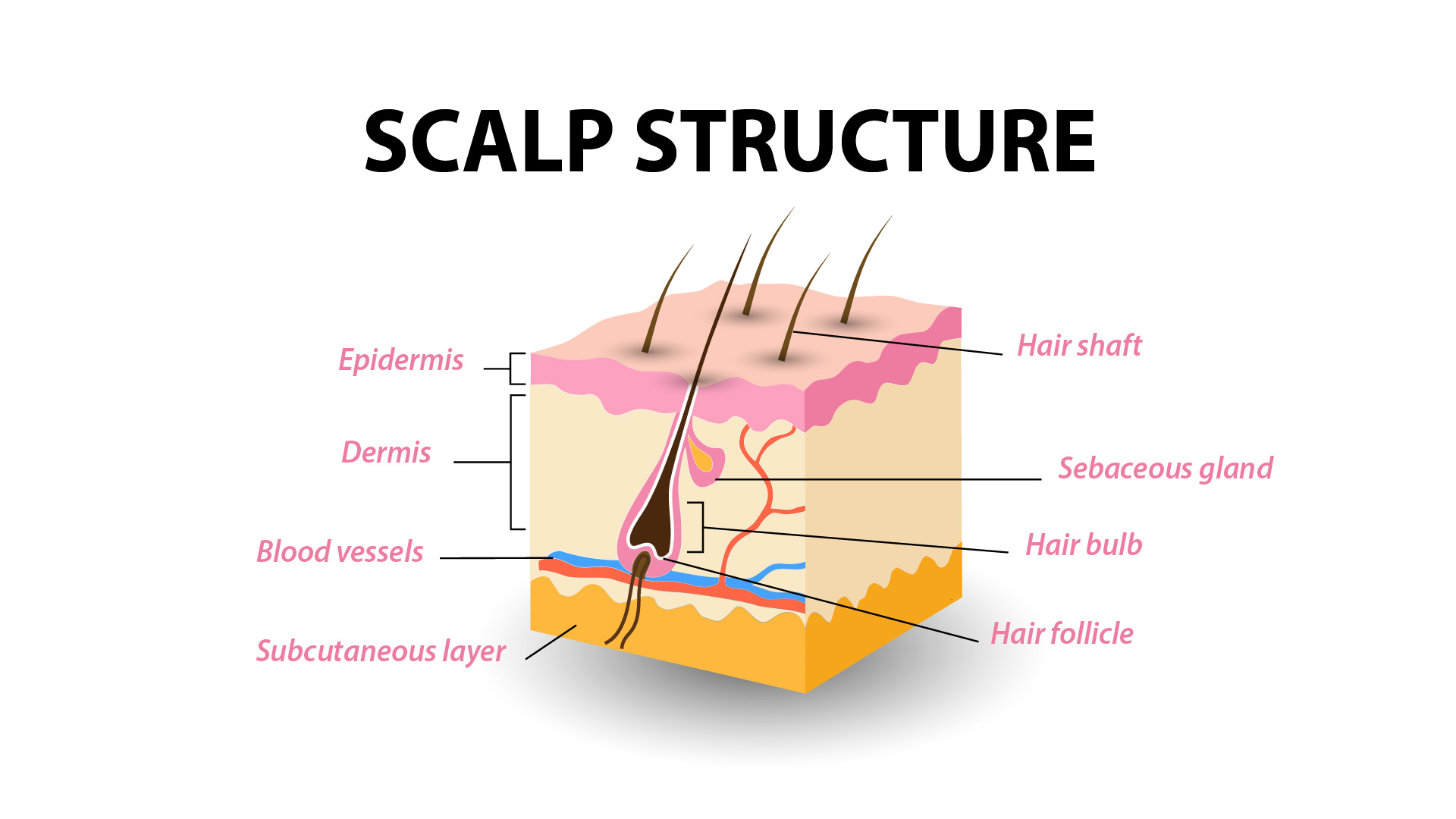
Afro Caribbean hair differs greatly from white or Asian hair, starting with its density: 90,000 hairs on average per skull, compared to 110,000 for the European population, or 150,000 for Asians. The hair shaft of frizzy hair, which is oval in shape, and the asymmetrical hair bulb of the follicles, give the hair tight curls and greater fragility. Also, the frizzy shape and the characteristics of the african skin expose the hair follicles more easily to external trauma. Finally, the hair is thicker, drier, and grows more slowly.
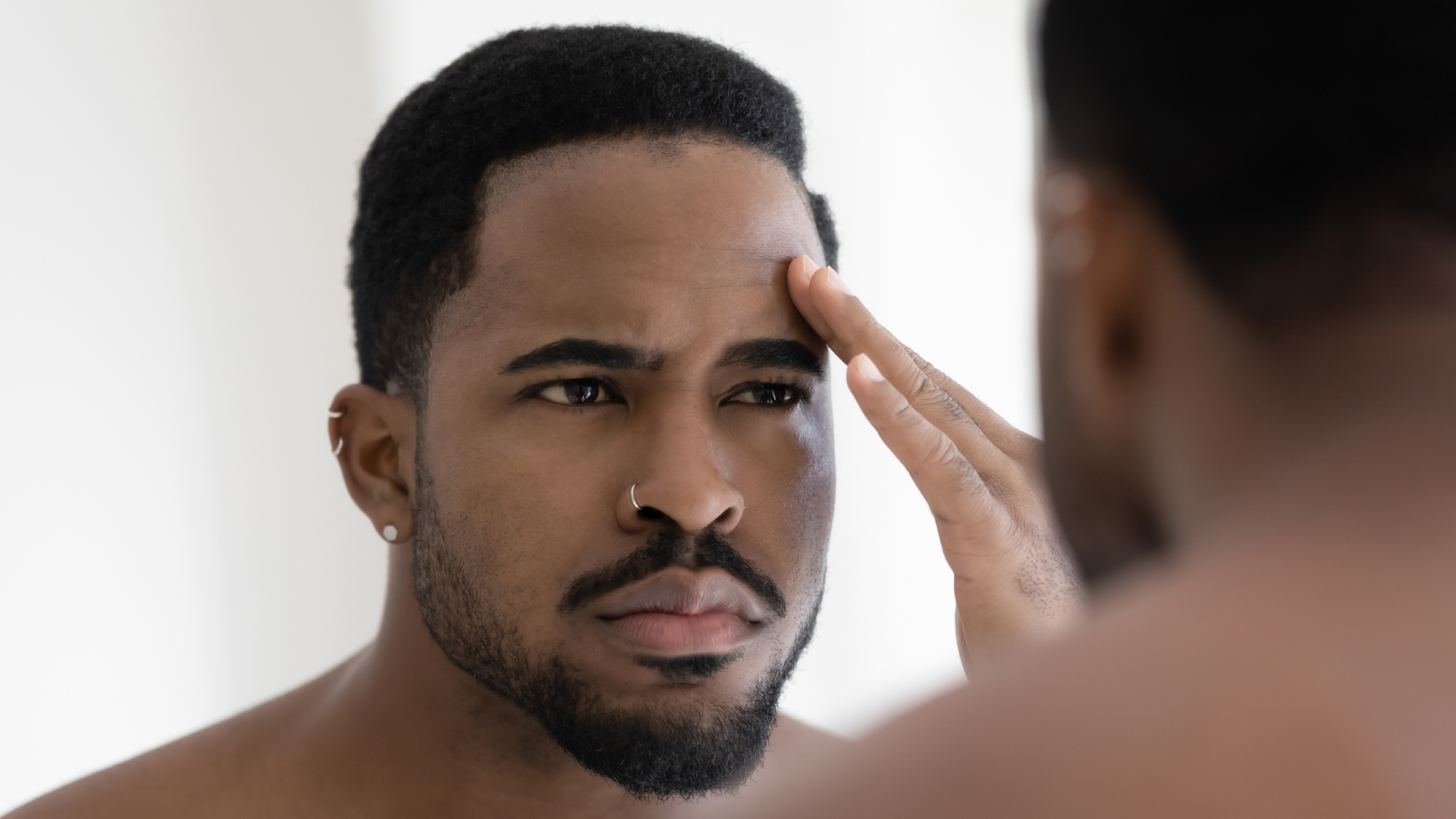
According to scientific and hospital observations on the subject, black women consult more frequently than white women for a problem of hair loss. As with European skin, the hormonal and genetic context plays a role. But because of fashion, cultural, ethnic or family habits, or even climate-related constraints, Afro-Caribbean women have widely adopted the use of particular hairstyles that are very harmful to their hair, such as braiding and straightening. Additions and extensions also increase the stress on the roots. Harmful hair care, synthetic coloring and follicle-damaging products, such as glue to hold braids, add to the trauma. Not to mention over-pulled roots under the sirocco of the hair dryer or a scalp that suffocates under wigs, all of this causes a form of alopecia that is highly prevalent in African-American women: central vertex centrifugal scarring alopecia (CVCA), also known as hot comb syndrome.
Although it is not ethnically specific, traction alopecia is a very common cause of hair loss in black women. Braids, cornrows, but also “dreadlocks” in the Rasta fashion among reggae fans, pull the follicles and cause many micro-traumas on the scalp. And to see the little girls of African origin thus styled with mini braids ultra tense, the problem can start from childhood. Especially among women over forty years old, the problem affects today the Afro female population all over the world, in a huge way.
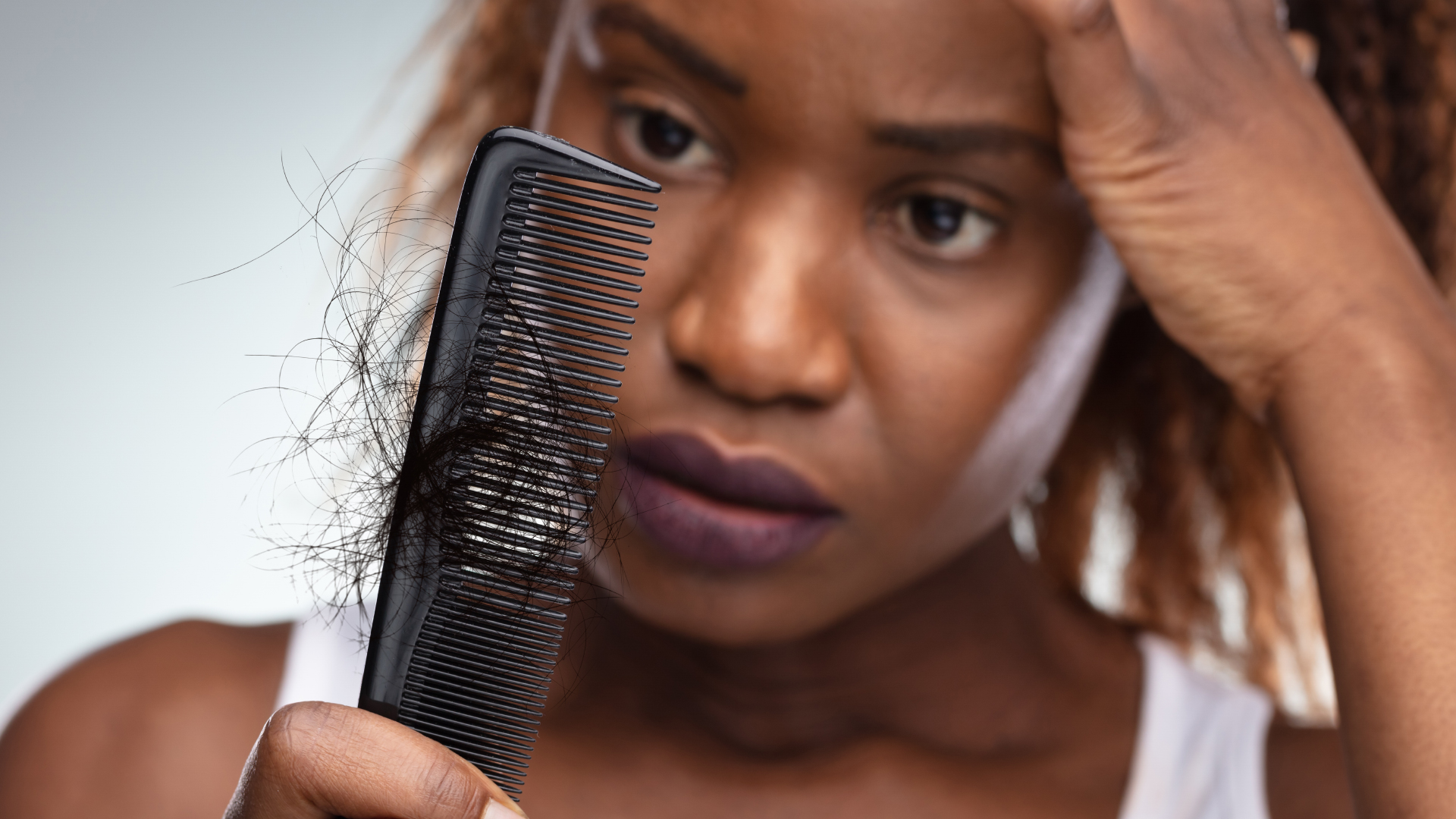
Because of their different specificities, frizzy hair is not the easiest to graft, and the procedures to follow during an Afro hair transplant may differ. Certainly, black hair transplant specialists welcome a larger donor area. A good for a bad: for afro hair restoration, because of the curved shape of the hair, the risk of transection (when the follicle is removed without the bulb) during the collection of grafts is higher than in European patients.
Hence the interest in manual FUE hair transplantation, a more precise and efficient technique for extracting follicular units, but also more time-consuming and more expensive. Unlike the extraction performed with a motorized micro-punch, the transplantation of grafts from the donor area to the recipient area is performed with a manual punch, the surgeon operating an alternate rotation around the follicle before extracting it with a micro-clamp. The surgeon thus has better control over his gesture, and better adapts it to the physiological conditions of the scalp.
More precise, less invasive and less traumatic for the hair epidermis, manual FUE follicular unit extraction hair transplant guarantees a better survival of the follicle, with a transection rate (loss of the graft) of 1 to 3%, while the transection rate reaches 10 to 15% with a motorized micro-punch procedure (the IFA hair transplant), conducted by an experienced surgeon. The neighboring grafts and the donor area are better preserved, the epidermis is less damaged by the operation (no bruises or scars), and the hair grows back better in the donor area. Thus, after 48 hours, the donor area is already healed, offering a more discreet transplant. Above all, the follicles are implanted more densely, offering a fuller and more natural regrowth. This is particularly suitable for frizzy and african hair, which is denser at the time of regrowth, as well as for the scalp of Afro patients, whose epidermis heals more slowly.
All these characteristics underline the need to choose a surgeon who is familiar with afro hair transplant procedure, and sufficiently experienced to perform a manual hair transplant.
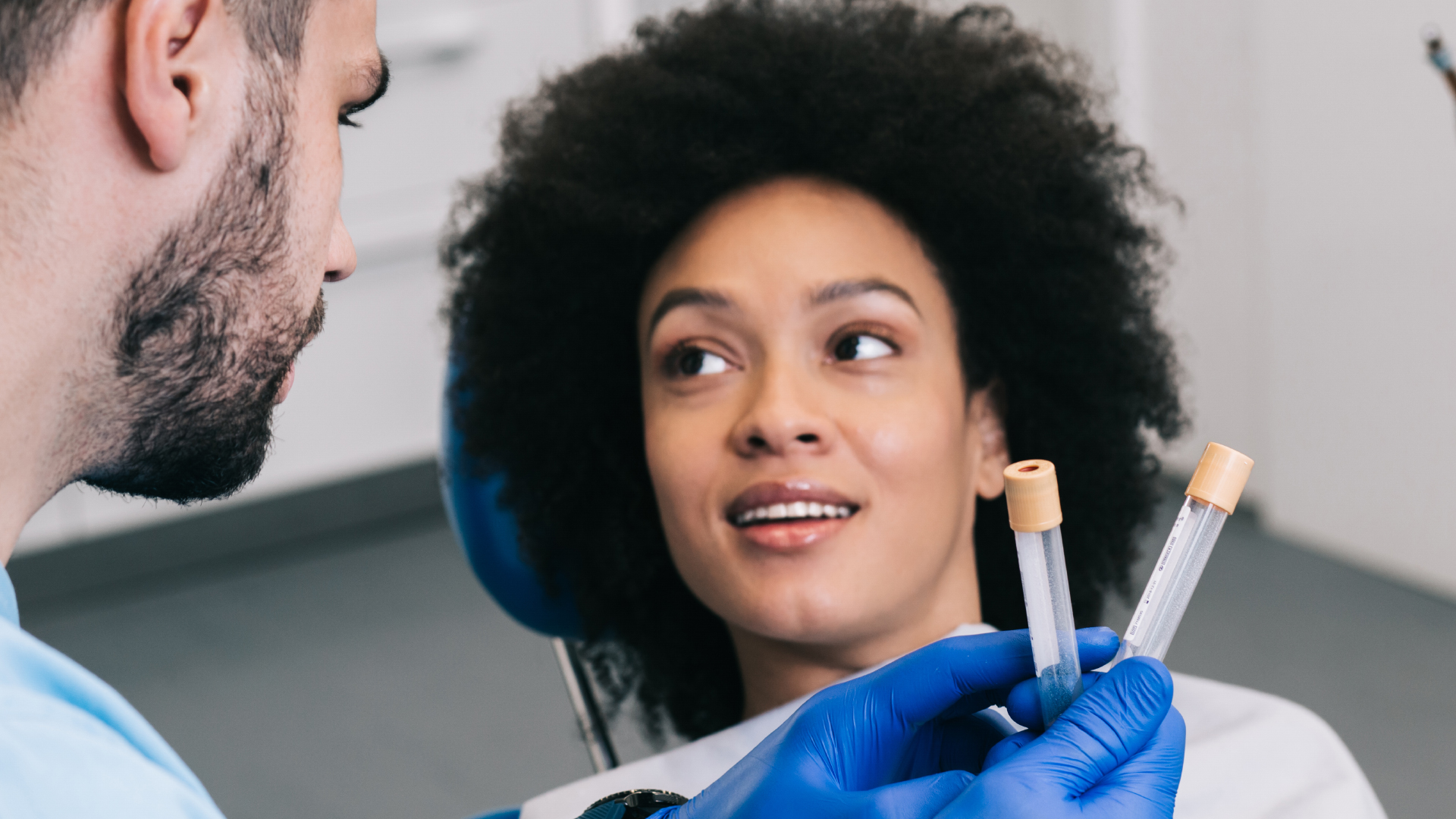
The final touch of kinky hair grafting is the PRP protocol treatment (Platelet Rich Plasma) ; it optimizes the fertilization of the grafts in the recipient area and guarantees a better rate of regrowth. It is especially recommended for African female hair transplants. This option is systematically proposed by Body Expert for manual FUE hair grafts.
